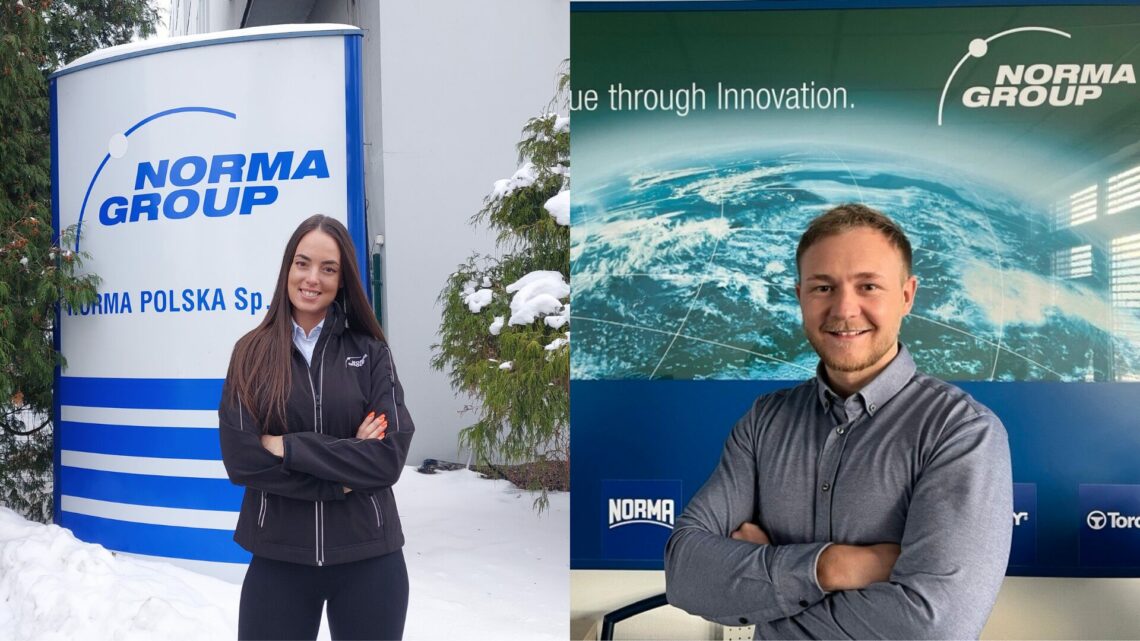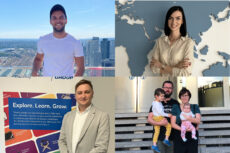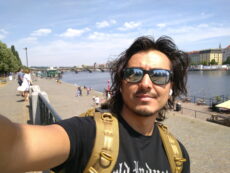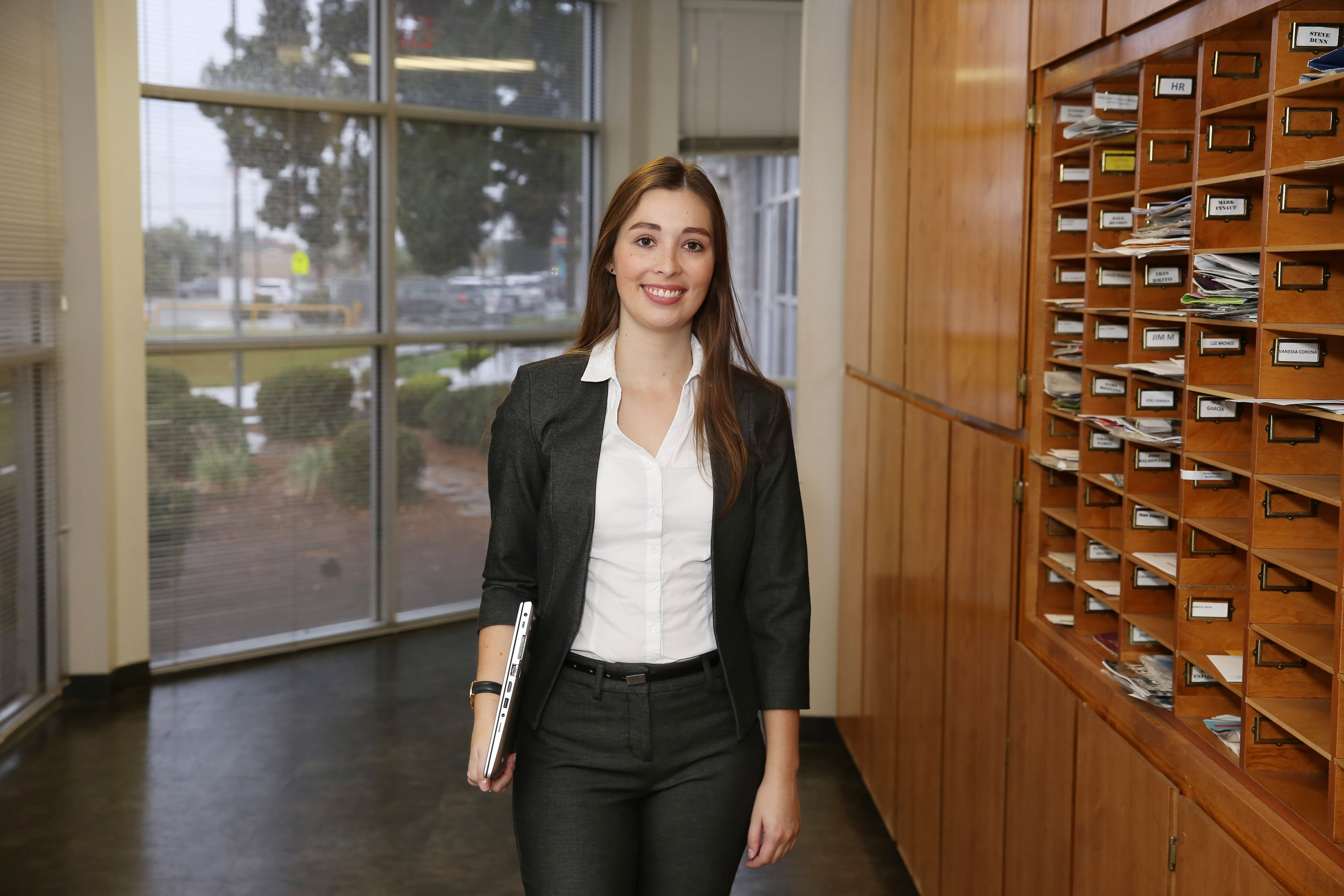This post is also available in: Deutsch
Living abroad for a while, getting to know a new culture and gaining some valuable international work experience? You can do it all at NORMA Group during a Bubble Assignment (BA). The goal of these assignments is to strengthen cooperation among the sites and to learn from each other. Overcoming national and cultural boundaries is a natural side-effect.
Sladjana Beronja, Program Purchasing Buyer Intern in Novi Sad, Serbia, and Sven Skupin, Specialist Purchasing Systems & Processes in Maintal, Germany, worked at the NORMA Group site in Pilica, Poland, as part of a bubble assignment. In this interview, they talk about the experiences they gained while working abroad.
How did the bubble assignment come about?
Sladjana: I have been working together closely with the purchasing department in Pilica since I joined the company in January 2023. That provided me with some experience with the projects being carried out there.
Sven: From joint discussions, my supervisor discovered that I was interested in doing a bubble assignment. A short time later, he approached me and offered me the opportunity to work at the site in Poland for two months. It was a perfect fit – I speak Polish because I learnt it from my parents.
What were your plans for your bubble assignment?
Sven: I wanted to learn as much as possible and enjoy the time abroad. It was clear to me from the beginning that my job in Pilica would be quite different from the one in Maintal – here I work in an administrative position for the NORMA store. In Pilica, on the other hand, I worked as an MRO buyer which meant that I had operational responsibilities: Most of the time, I worked directly with suppliers, conducting negotiations, comparing offers and generating savings. I wanted to have an open mind about the assignment and acquire as much expertise as possible.
I also wanted to improve my Polish, because it makes a big difference whether you only speak one language or actually work in that language. And, of course, I wanted to take the opportunity to get to know my parents’ home country better. We were given a company car at the weekend, so we were able to travel a lot to places like Krakow, Warsaw and Katowice. We also visited the memorial site at Auschwitz.
St. Marys Basilica, Krakow – Palace of Culture and Science at day and night, Warsaw
Sladjana: One of the most important aspects of the BA for me was having the opportunity to finally meet my colleagues in person, who I usually only see on screen, and to support them as much as possible. Unlike Sven, I had never been to Poland before, so I was excited about the different culture that awaited me there.
I naturally also wanted to travel and visit a lot of historical places in this area. I was fascinated by the tradition and architecture of the many castles in Poland, and excited to see cities like Krakow and Warsaw.
What was the difference between your daily working routine in Germany/Serbia and in Poland?
Sladjana: There were many new situations for me – even though I already knew the team and base of work, it’s still a big difference when you work with someone in person. The working methods and routines are different – but it was great that I already knew most of the suppliers and had experience in negotiation. The main difference is a lot of operational work and new role which was familiar but not the same as my previous. It was challenging to connect it. But all the employees on site supported me and were always willing to listen. I was grateful for every day that I spent there. I also had great support from my team from Serbia and got great advice from my mentor and colleagues every day.
Sladjana Beronja
Sven: I had the same experience – the level of support from the team was incredible! My tasks in Pilica were very different from my day-to-day work here. In Maintal, we have many daily topics as well as project-based ones. It sometimes means that I work on a topic for a relatively long period of time, because these are generally cross-departmental and require regular consultation with colleagues.
In Pilica, on the other hand, the work dynamic is completely different at plant level. There are many operational tasks that tended to be more related to a day-to-day business or short-term. Examples include negotiating better prices or delivery conditions. Completing tasks like that meant I was in constant contact with the suppliers. I also often worked directly with colleagues from the Production and Engineering department.
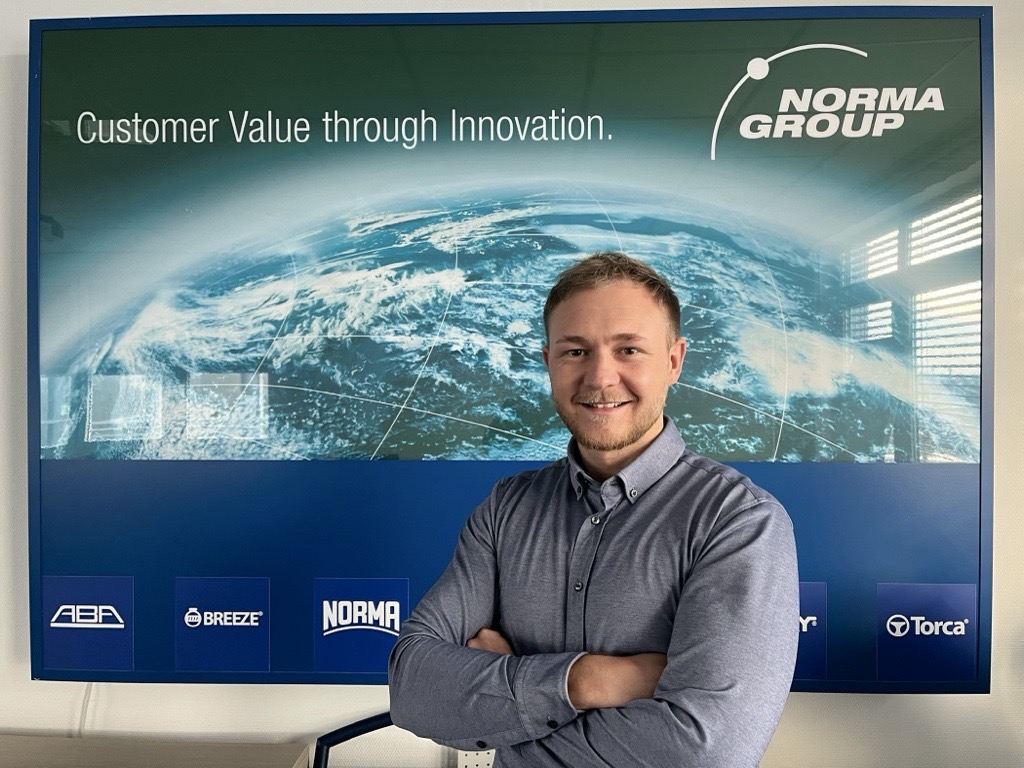
Sven Skupin
And what did you take away for your daily work routine?
Sven: A lot! I discovered that working as a buyer is something that I really enjoy. The direct contact with suppliers is exciting and you have an opportunity to build up a relationship with your contacts over time. I really liked that. Above all, I have learnt that I enjoy my work the most when I can find the right balance. Project-related topics can take a lot of time and you need a lot of patience. But day-to-day work in the operational business can also be very stressful because new issues are constantly popping up. You need to find an effective middle way in between.
Sladjana: My knowledge of the entire purchasing function expanded substantially. The Bubble Assignment was an experience of a lifetime – I am not the same person I was when the assignment started. There were some situations that I was not familiar with from my everyday work in Serbia. I was also incredibly proud to see what I could achieve on my own when I wasn’t in my accustomed environment. It was great to see what I was capable of!
Sven, has your view of NORMA Group changed?
It certainly has! I learned a lot about the company. Working with employees from the plant, for example, results in a completely different set of dynamics. And the fact that we all have to act as a team and pull together to succeed in a global company.
NORMA Group gave me the opportunity to do a bubble assignment showed that they have confidence in me. For that I am very grateful.
And what did you do in your free time?
Sladjana: We spent a lot of time together, visiting Krakow, Auschwitz and Warsaw. That was an incredible experience. I also went to a volleyball match with our colleagues. That was interesting because the people there are very passionate about volleyball – Poland has a long history of international success in volleyball, one of the most popular national sports alongside soccer and ski jumping.
Sven: One example was when our supervisor invited us to an ice hockey game in his hometown – he is a huge ice hockey fan.
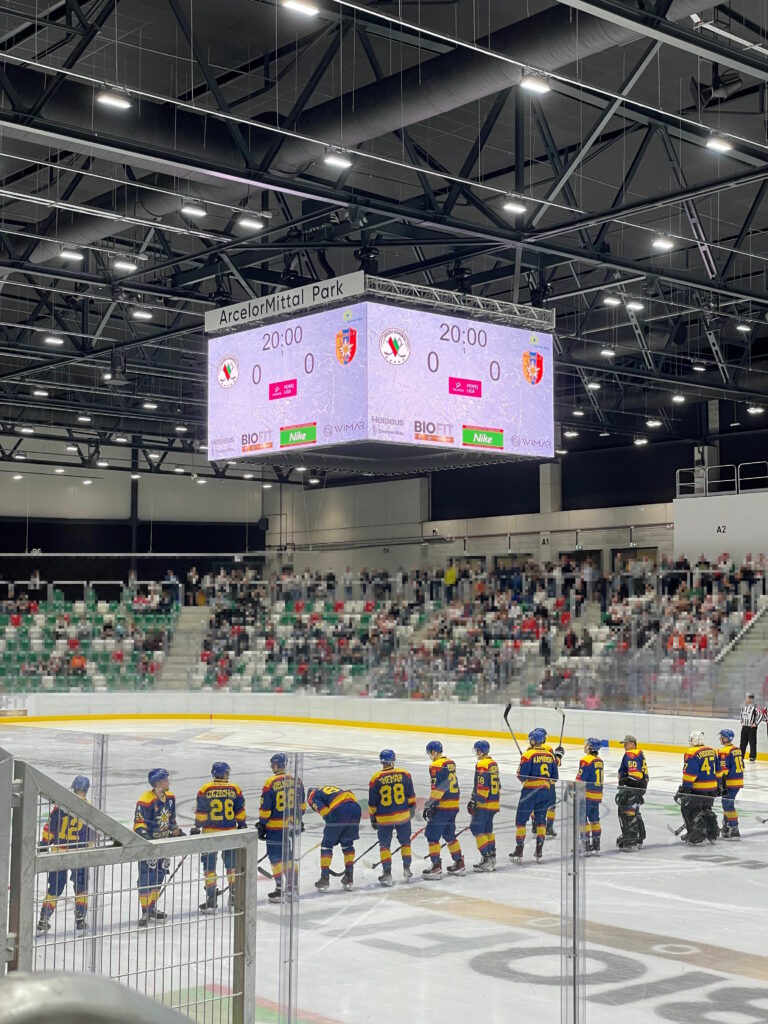
On another day we went to a soccer stadium with other colleagues or sometimes got together in a restaurant or bar. Sladjana and I also often went to the gym together after work because it was important for us to have a healthy balance.
Sladjana: That’s right! And because I am a big fan of architecture, I was particularly impressed by Ogrodzieniec Castle. Colleagues told me that the series The Witcher was also filmed there. There was also a lot of snow so the view as great. Later, we organized a Christmas Secret Santa because of the Holidays in advance. My colleagues thought that was great and supported my team spirit. We had a lot of fun together!
Sladjana, what are two things from your time in Poland that you definitely don’t want to forget?
Except great energy and support I brought home a few things. The first is a dragon toy that I got when I was in Krakow. It was with me throughout the entire bubble assignment and is a great souvenir – the dragon is one of the signs of Krakow and my advice for all is to explore what is the story from behind.
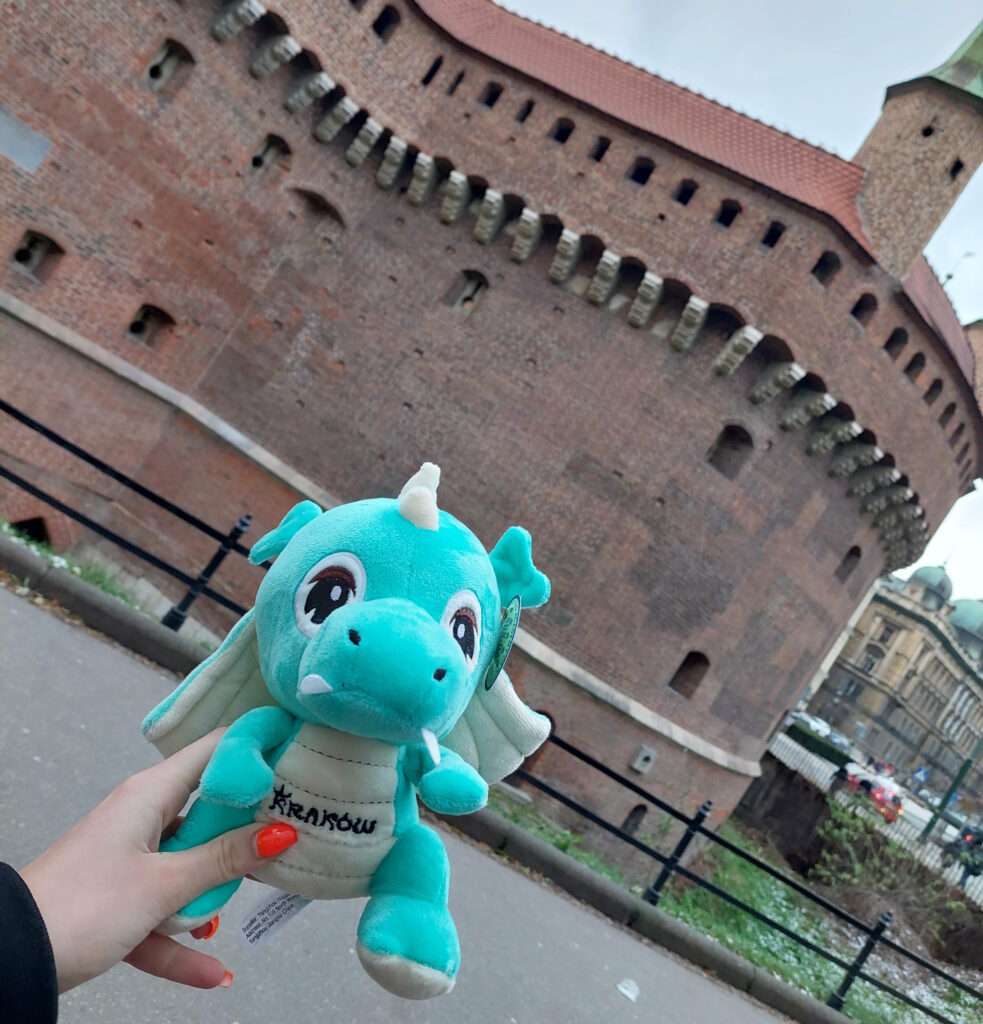
Secondly, the Santa Claus that I received from my colleagues as a Secret Santa gift – it now has a prominent place on my desk. My nameplate for the door is also on my desk. I got it as a parting gift and it’s a testament to the great team spirit on site: It’s really nice to be part of a team and to be fully accepted. And there was a place for a package of delicious Polish sweets, of course.
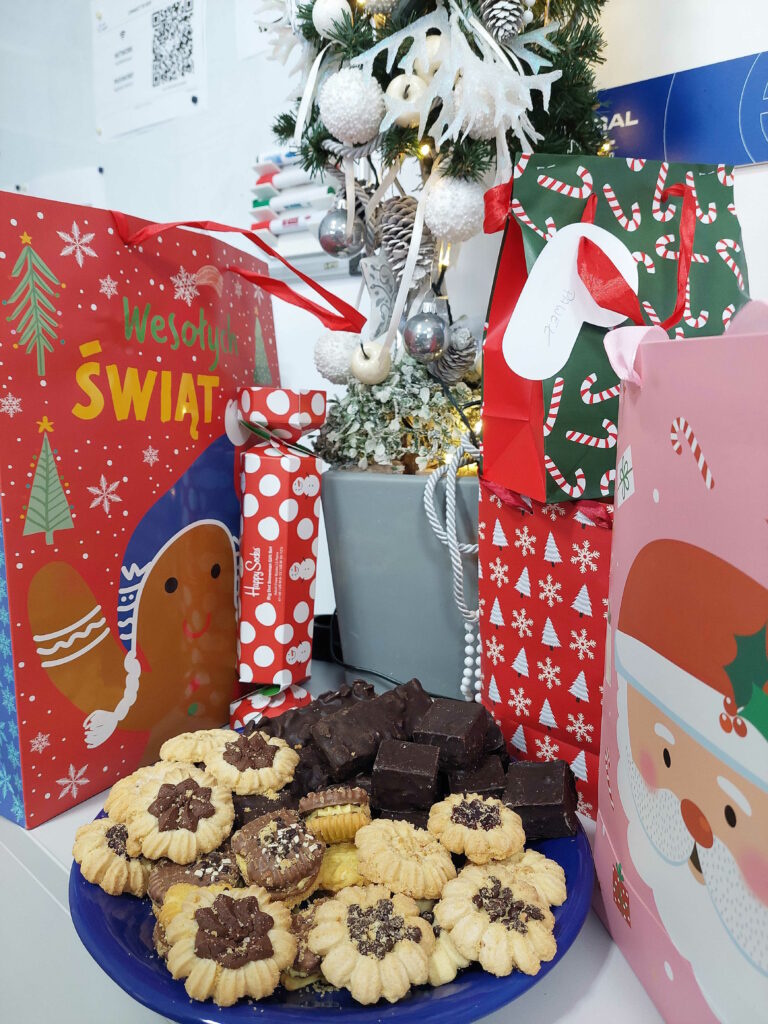
What advice would you give to someone starting a bubble assignment in the near future?
Sven: Be open to the experience. If you want your assignment to be enjoyable and interesting, you need to have a positive attitude. You have to be committed to the team and be enthusiastic about learning. It can be stressful, but it’s always worth it at the end of the day.
Sladjana: Exactly! Don’t be afraid to try something new and to welcome change, because every change is an opportunity to grow and improve. It doesn’t matter how old someone is or what position they hold. You have to find your place in the new environment. My time in Poland made me realize what I want my career path to look like – I now know what I want and what I can expect from myself. I feel like I’m one step closer to my ultimate goal, and that’s a great feeling – a feeling I owe to the bubble assignment.

